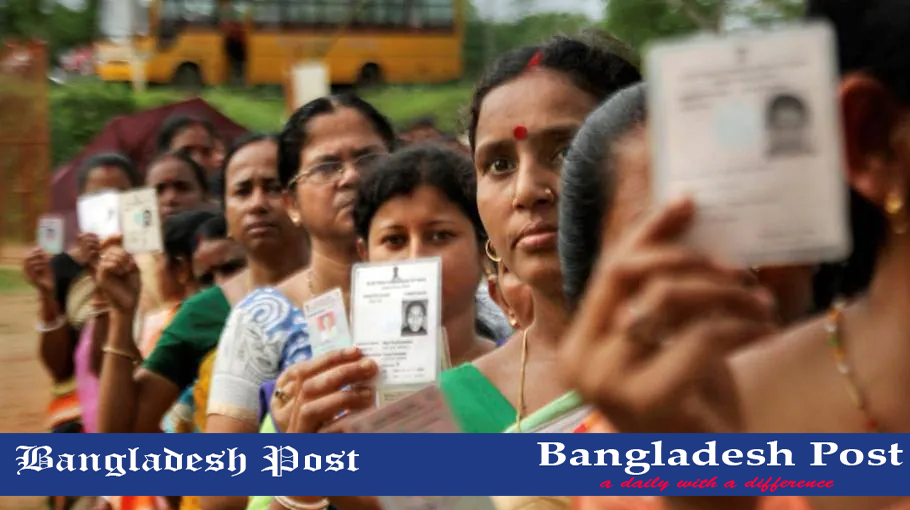Voting Held for 2nd Phase Lok Sabha Polls

Millions of Indians on Thursdayqueued up to vote in the second phase of the mammoth and long-drawn parliamentary elections in which Prime Minister Narendra Modi-led Bharatiya Janata Party is pitted against the main opposition and an assortment of regional parties. Nearly 158 million voters were eligible to exercise their franchise in the second phase which covered polling in 95 constituencies spread across 12 states and one federally administered territory. The significance of this phrase lies in whether the opposition can dent the BJP’stally in these in the last general elections five years ago when the saffron party had won 27 seats and its allies six out of the 95.
With today’s polling, the exercise has been completed in 34 percent of the total 543 parliamentary constituencies after the first phase on April 11 had witnessed voting in91 constituencies. The final round of polling will be held on May 19 and the results declared four days later. Stray violence was reported from parts two of the three parliamentary constituencies in the northern part of West Bengal which went to a poll on Thursday with the car of CPI(M)candidate Mohd Salim being attacked in one instance when was on his way to cast vote in Raigunjconstituency.
Read More: First phase of UP polls ends
Salim is pitted against Congress's sitting lawmakerDeepa Dasmunsi. Before DeepaDasmunsi, her husband PriyaRanjan Dasmunsi had held the seat since 1999. Violence also took place near a booth in Girpar in the same constituency, where voters blocked the National Highway 34, claiming that miscreants did not allow them to vote. In Chopra in Darjeelingconstituency, another group blocked the highway claiming they were not allowed to vote. The police used batons and tear gas, and finally fired in the air to disperse the protesters.
The focus in the second phase of polling was on two key southern states Tamil Nadu where 39 parliamentary seats were up for grab and next-door neighbor Karnataka where voting was held in 14 of the total of 28 constituencies in the state.The significance of the second phase of polling is that it covered the 95 seats dominated by regional parties in the previous parliamentary poll in 2014which together won 47 while the BJP-led NDA and the Congress-led UPA had bagged 33 and 15 respectively.
The biggest chunk of seats where voting was held on Thursday is in Tamil Nadu where the voters elected their candidates in all the 39constituencies in an election in the state where there is a direct contest between alliances headed by two key Dravidian parties whose politics is based on castes low in the hierarchy.
While the state’s ruling India Anna Dravida MunnetraKazagham is leading the alliance that includes the BJP, the rival combine is led by Dravida MunnetraKazagham and has the Congress init.
Read More: Parliamentary body summons former Biman officials
The DMK is widely favored to win in Tamil Nadu this time after theAIADMK under the leadership of filmstar-turned-politician JairamJayalalithaa had swept 36 of the 39parliamentary seats five years ago. However, after the death of Jayalalithaa two years ago, the theAIADMK suffered a split over the issue of who would succeed her as the party chief and this could significantly enhance the prospects of the DMK-led alliance this time.
Equally important in Tamil Nadu was the polling on Wednesday in the by-election to 18 state assembly seats whose outcome will decide the fate of the AIADMK government in the state headed by Chief MinisterEdapadi K Palaniswami.




